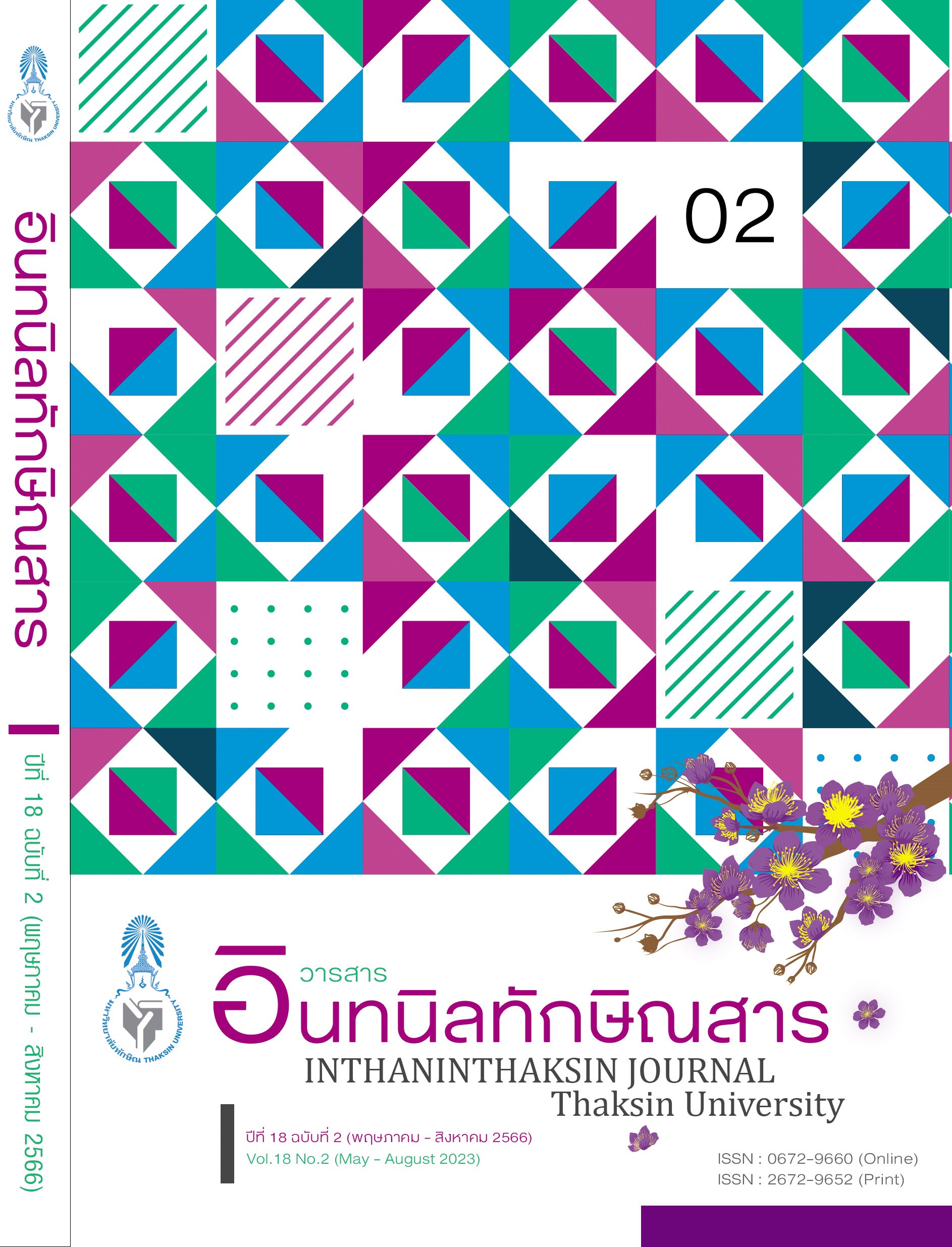เมียนมาร์กับสถานภาพความเป็นรัฐนอกรีตในสายตาตะวันตก: ยุคก่อนการเปลี่ยนผ่านทางการเมือง ในปี 2553
Main Article Content
บทคัดย่อ
โลกได้รับการเปลี่ยนแปลงอย่างมากในเวทีการเมืองในช่วงยุคสงครามเย็น ประชาธิปไตยได้แผ่ขยายไปทั่วประเทศตะวันตก อันเป็นผลมาจากความเชื่อที่ว่ารัฐของพวกเขาจะแข็งแกร่งขึ้นภายใต้ระบอบประชาธิปไตย ในภายหลังประเทศตะวันตกเหล่านี้เริ่มอ้างถึงรัฐใด ๆ ซึ่งไม่ได้ใช้ระบอบการปกครองเดียวกับตนว่าเป็นรัฐที่อ่อนแอ ในโลกประชาธิปไตย สหรัฐอเมริกาเริ่มทำตัวเป็นพี่ใหญ่ให้กับชาติอื่นๆ สหรัฐฯ ได้สร้างคำศัพท์มากมายเพื่อใช้แทนเรียกคำว่ารัฐที่อ่อนแอ เช่น รัฐอันธพาลและแกนแห่งความชั่วร้าย วัตถุประสงค์ของบทความนี้ เพื่อที่จะอธิบายให้ทราบถึงสาเหตุว่าทำไมเมียร์มาร์ถึงถูกอ้างว่าเป็นรัฐนอกรีตจากมุมมองของตะวันตกในช่วงก่อนเริ่มมีการเปลี่ยนผ่านทางการเมืองในปี2010 มีปัญหามากมายที่เห็นได้จากการที่ประเทศนั้นมีปัญหาด้านสิทธิมนุษยชน และขาดหลักนิติธรรมที่ชัดเจนในการบริหารประเทศ วิธีการปกครองประเทศภายใต้ระบอบการปกครองของทหารก็เป็นอีกเหตุผลหนึ่งที่ทำให้เมียนาร์มีสถานภาพเป็นรัฐนอกรีต เนื่องจากรัฐบาลทหารมักใช้ความรุนแรงต่อพลเรือนของตนเอง ปัจจัยทั้งหลายเหล่านนี้เป็นเหตุผลที่ทำให้เกิดทัศนคติเชิงลบในมุมของของชาติตะวันตกที่มีต่อรัฐเมียนมาร์
Article Details

อนุญาตภายใต้เงื่อนไข Creative Commons Attribution-NonCommercial-NoDerivatives 4.0 International License.
เอกสารอ้างอิง
Alamgir, Jalal. (1997). Against the current: The survival of Authoritarianism in Burma, Pacific Affairs, 70(3), 333-350.
Callahan, Mary, P. (2003). Making Enemies: War and State Building in Burma. Ithaca: Cornell University Press.
Duffield, Mark. (2008). On the Edge of ‘No Man’s Land: An Independent Report Commissioned by the Office of the UN, RC/HC, Yangon and UNOCHA, New York.
Englehart, Neil, A. (2012). Two Cheers for Burma's Rigged Election, Asian Survey, 52(4), 666-686.
Ghai, Yash. (2008). The 2008 Myanmar Constitution: Analysis and Assessment. Retrieved on January 21, 2023 from http://www. burmalibrary. org/docs6/2008_Myanmar_constitution--analysis_and_assessment-Yash_ Ghai.pdf.
Guyot, James, F. (1991). Myanmar in 1990: The Unconsummated Election, Asian Survey, 31(2), 205-211.
Harkavy, Robert, E. (1981). Pariah States and Nuclear Proliferation, International Organization, 35(1), 135-163.
Hlaing, Kyaw, Y. (2004). Myanmar in 2003: Frustration and Despair?, Asian Survey, 44(1), 87-92.
International Crisis Group. (2001). Myanmar: the Role of Civil Society, Asia Report, No.27, Bangkok/Brussels.
International Crisis Group. (2002). Myanmar: The Future of the Armed Forces, Asia Briefing, Bangkok/Brussels.
International Crisis group. (2008). Burma/Myanmar: After the Crackdown, Asia Report, No.144.
Lehman, F, K. (1981). Military Rule in Burma Since 1962. Singapore: Maruzen Asia Pte.Ltd.
Liddel, Zunetta. (1999). No Room to Move: Legal Constraints on Civil Society in Burma. Chiang Mai: Silkworm Books Publishing Company.
Matthews, Bruce. (1998). The Present Fortune of tradition-Bound Authoritarianism in Myanmar, Pacific Affairs, 71(1), 7-23.
Maung, Mya. (1997). Burma’s Economic Performance under Military Rule: An Assessment, Asain Survey, 37(6), 503-524.
McCarthy, Stephen. (2000). Ten Years of Chaos in Burma: Foreign Investment and Economic Liberalization under the SLORC-SPDC,1988 to 1998, Pacific Affairs, 73(2), 233-262.
Saijun, Kosum. (2006). Burma: the Foreign Policy. Chiang Mai: Chotanaprint Publishing Company (Thai book).
Selth, Andrew. (2002). Burma’s Armed Forces: Power Without Glory. The United States of America: EastBridge Publishing Company.
Silverstein, Josef. (1996). The Idea of Freedom in Burma and the Political thought of Daw Aung San Suu Kyi, Pacific Affairs, 69(2), 211-228.
Taylor, Robert, H. (2001). Burma: political Economy under Military Rule. London: C.Hurst and Co. (Publishers) Ltd.


